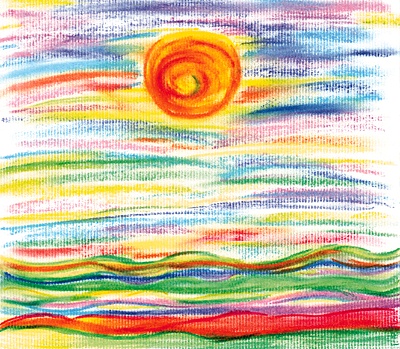All Nonfiction
- Bullying
- Books
- Academic
- Author Interviews
- Celebrity interviews
- College Articles
- College Essays
- Educator of the Year
- Heroes
- Interviews
- Memoir
- Personal Experience
- Sports
- Travel & Culture
All Opinions
- Bullying
- Current Events / Politics
- Discrimination
- Drugs / Alcohol / Smoking
- Entertainment / Celebrities
- Environment
- Love / Relationships
- Movies / Music / TV
- Pop Culture / Trends
- School / College
- Social Issues / Civics
- Spirituality / Religion
- Sports / Hobbies
All Hot Topics
- Bullying
- Community Service
- Environment
- Health
- Letters to the Editor
- Pride & Prejudice
- What Matters
- Back
Summer Guide
- Program Links
- Program Reviews
- Back
College Guide
- College Links
- College Reviews
- College Essays
- College Articles
- Back
Breaking The Cycle
I want you to imagine this scene: A young girl of around ten years of age kneels in the middle of a busy street in China asking for money. Her clothes are black with soot and torn in various places, and her emaciated form is exposed through her rags. It is obvious that she is homeless; her “bed” can be seen on the corner of a building twenty feet away. But most tragically, she does not have any arms. In her eyes I can read despair, but also anticipation and hope—hope that a kind passerby will drop some spare change into her bucket to sustain her survival.
However, her bucket is conspicuously empty. Pedestrians, shoppers, police officers alike, all pass by her without a moment’s hesitation. They do not even pause to acknowledge her sorry state. Walking alongside my Grandma, she pulls on my arm and quickly ushers me past also.
No, the average Chinese citizen was not too poor to offer a little pocket change—even the typical American such as I was aware of the rapidly increasing standard of living in China. And no, the Chinese are not just stingy, selfish, or cold-hearted people that just do not care. So then, why was this poor girl left to suffer?
My Grandma tells me many stories: she once gave a woman fifty dollars to pay for her baby’s heart operation the next day, only to find the same woman telling the same story five months later; a man pretending to have two contorted feet turns out to be a healthy athlete; and a child is given three casts by his parents to fake a neck injury and two broken arms. These con artists exist in hordes on the streets of China, desensitizing possible donators to the hopeless conditions of the poor, crippled, and homeless. Unfortunately, some of them are not faking. The girl I first described was an orphan whose arms were really burned off in a fire. This information I discovered from the police when they took away her body after she had starved to death.
Upon learning of her death, the burdensome weight of guilt and regret crept in. I wished I had not listened to Grandma, I wished I had not been so cynical, and I wished I had not walked away. Fury soon followed—the shady actions of these fakers ruined it for everybody. People become disillusioned with the concept of charity, all too many times witnessing their sympathy misguided and their contributions wasted by lazy liars, and eventually decide not to help at all.
This bleak chain of events put me into a long silence. The actions of the posers, people capable but unwilling to support themselves, were repugnant. But the public was not completely innocent either—does anything justify neglecting a helpless girl without the blink of an eye? I am included in the ones who are guilty. I allowed generalizations and the actions of the majority overshadow the fact that some people, like that little girl, needed the charity of those around her and did not deserve to be judged based on the deeds of others.
So who is to blame? Not only the fakers, but also the cynical public—creating a cycle in which the worst qualities of people emerge: for the fakers, it is obviously deceit and treachery; but for us, the ones watching their deceit, it is insensitivity and conformity. I spent the rest of my stay in China pondering, and considered the possibility of social services run by the Chinese government. These services could potentially expose the frauds to reach the ones who truly needed aid. I set this possibility in my mind as a cause I would like to support in the future, but I also knew this process would take many long steps. I eventually realized that there was no immediate solution, no grand scheme to eliminate the follies of human beings.
But all was not hopeless: I now try to assume the best in people, no matter what convention implies. Because, people are not defined by their stereotypes, and believing so can have crushing implications. The deplorable actions of a few, or even the majority, will no longer compromise my compassion for any individual. This is my first step in breaking the cycle
I now want you to imagine this scene: A young girl kneels and begs on the streets. I pause, I stop, and I hand her a twenty dollar bill. My grandma tells me I am naïve, but I actually understand the situation much more than she would expect. I smile and start talking—it is my turn to teach her.

Similar Articles
JOIN THE DISCUSSION
This article has 0 comments.
